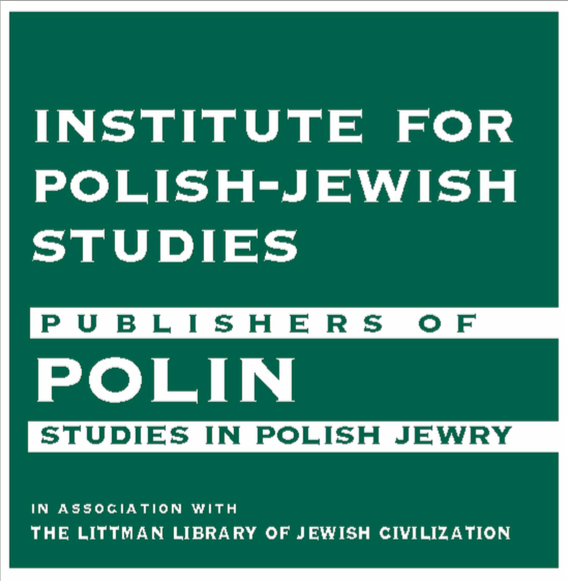May 21, 2019
Holocaust survivors and Holocaust historians –
How do their narratives of the past differ?
In Cooperation with the Wiener Library
Event Report
This event was conceived following an exchange between Tim Cole, historian of the Holocaust and its representation, and Agnes Kaposi, a Hungarian-Jewish survivor of Debrecen ghetto, during a conference organised by the Institute for Polish-Jewish Studies on Polish- and Hungarian Jewish history earlier this year. The exchange focused on what we know about the establishment of Nazi ghettos in Hungary, and how the experience of a former inmate of such a ghetto squares with the historian’s assessment. How do we accommodate different perceptions and assessments? How do the two sides speak to each other?
This evening offered an opportunity to think about historical knowledge, the position of the witness, the contribution of the historian, and their relationship, which at times is not without tension. It was also an invitation to challenge both – as Tim Cole and Agnes Kaposi put it in preparation of this evening: Should we give credence to the historians? Should we give credence to the survivors? It started with short presentations by Kaposi and Cole, followed by a response by Antony Polonsky (Institute for Polish-Jewish Studies) and an open discussion with the audience. With over 150 peope in attendance, the speakers reflected on the similarities and differences of the ghettoisation of the Jewish population in Hungary and Poland during World War Two. Professor Kaposi shared insights of her recollections of the Jewish ghetto in Debrecen, and of forced labor she had to carry out in Austria after the evacuation of the ghetto. Tim Cole explained that his research into ghetto inmate lists allows for the reconstruction of age and gender patterns in the Hungarian case, very different from the Polish one. The evening was chaired by François Guesnet (University College London/Institute for Polish-Jewish Studies). It was hosted jointly by the Wiener Library and the Institute for Polish-Jewish Studies, with support from the UCL Department of Hebrew and Jewish Studies.
Speakers:
Tim Cole is professor of social history at the University of Bristol and director of the Brigstow Institute, a multidisciplinary research center. His core research has focused on Holocaust representation (Images of the Holocaust/Selling the Holocaust, 1999), the spatiality of ghettorization in Budapest (Holocaust City, 2003), social histories of the Hungarian Holocaust (Traces of the Holocaust, 2011) and the spatiality of survival (Holocaust Landscapes, 2016). He has co-edited a collection of essays emerging from an interdisciplinary digital humanities project he co-led (Geographies of the Holocaust, 2015).
Agnes Kaposi was born in 1932 to a Hungarian-Jewish and socialist family and as a child survived Debrecen ghetto and labor camps in Austria. After the war, she returned to Stalinist Hungary and graduated from the Budapest Technical University and worked as an electronic engineer. Among others, she contributed to the Hungarian TV broadcasting infrastructure. After the 1956 Uprising against Communist rule, Kaposi left Hungary to work as industrial and academic researcher in the Telecommunication and Computer industries. She is Fellow of the Royal Academy of Engineering and emeritus professor in electrical engineering at London South Bank University.
Antony Polonsky is Chief Historian of the POLIN Museum of the History of Polish Jews, Warsaw and emeritus professor of Holocaust Studies at Brandeis University. He is co-chair of the editorial board of Polin: Studies in Polish Jewry, author of Politics in Independent Poland (1972), The Little Dictators (1975), The Great Powers and the Polish Question (1976), and co-editor of The neighbors respond: the controversy over the Jedwabne Massacre in Poland (2004). His most recent work is The Jews in Poland and Russia volume 1, 1350 to 1881; volume 2 1881 to 1914; volume 3 1914 to 2008 (2010, 2012), published in 2013 in an abridged version The Jews in Poland and Russia. A Short History.
Chair:
Francois Guesnet is Reader in Modern Jewish History in the Department of Hebrew and Jewish Studies at University College London. His book publications include Polnische Juden im 19. Jahrhundert: Lebensbedingungen, Rechtsnormen und Organisation im Wandel (1998), Der Fremde als Nachbar. Polnische Positionen zur jüdischen Präsenz in Polen. Texte seit 1800 (2009), and co-editor of Antisemitism in an Era of Transition: The Case of Post-Communist Eastern Central Europe (2014) and Warsaw. The Jewish Metropolis. Studies in Honor of the 70th Birthday of Professor Antony Polonsky (Boston, Leiden: Brill Academic Publishers 2015).


